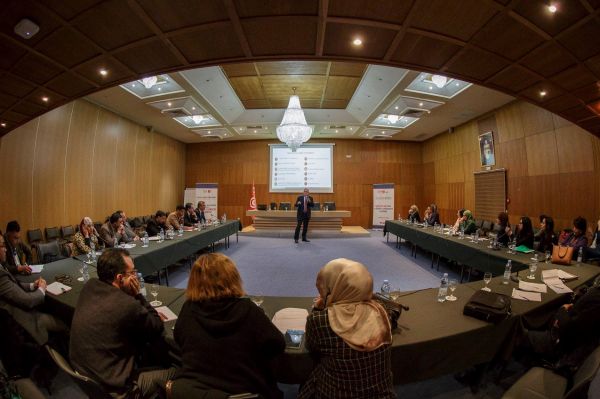Social entrepreneurship
At this very sensitive stage of Tunisia’s development, with almost one million of unemployed and about 25% of the society living under the poverty line, a few disagree that the private sector has to play a very crucial role in creating sufficient jobs and achieving sustainable growth in the near future. At TAYP, we work very hard to promote Tunisia’s potential and opportunities to US investors, because we believe in this very premise that private sector needs to be developed, and that Tunisian entrepreneurs need also to be connected to US energies, expertise and funds . The question that could be raised here is: what type of entrepreneurs? (and consequently, what type of investors?). Considering the distance and the transaction cost, the interest would go typically to the high growth, cash hungry (established) companies. And indeed, despite the uncertainty and the internal challenges, there are companies that are growing fast in Tunisia and that deserve high attention.
Focusing on this type of deals would, however, leave untapped a large amount of resources that could be leveraged for the support of another type of innovators and initiators: the (for-profit) social entrepreneurs. A social entrepreneur recognizes a social problem and uses
entrepreneurial principles to organize a venture to achieve social change, providing market-based solutions to urgent social issues. To read the entire article, http://www.tayp.org/us_investors/social-entrepreneurship (Social Entrepreneurship : Achieving social change through entrepreneurship
At this very sensitive stage of Tunisia’s development, with almost one million of unemployed and about 25% of the society living under the poverty line, a few disagree that the private sector has to play a very crucial role in creating sufficient jobs and achieving sustainable growth in the near future.
At TAYP, we work very hard to promote Tunisia’s potential and opportunities to US investors, because we believe in this very premise that private sector needs to be developed, and that Tunisian entrepreneurs need also to be connected to US energies, expertise and funds . The question that could be raised here is: what type of entrepreneurs? and consequently, what type of investors?.
Considering the distance and the transaction cost, the interest would go typically to the high growth, cash hungry (established) companies. And indeed, despite the uncertainty and the internal challenges, there are companies that are growing fast in Tunisia and that deserve high attention.
Focusing on this type of deals would, however, leave untapped a large amount of resources that could be leveraged for the support of another type of innovators and initiators: the (for-profit) social entrepreneurs. A social entrepreneur recognizes a social problem and use entrepreneurial principles to organize a venture to achieve social change, providing market-based solutions to urgent social issues.
The concept, therefore, is very seducing, mixing the benefits of the non-profit and the private sectors. And, in the Tunisian context with so many social challenges, we do not only need entrepreneurs, but also active social entrepreneurs: entrepreneurs who design effective business models to serve disadvantaged communities in the sectors of environment, education, green energy, access to finance, governance, health etc.
Of course the profiles and the needs of these social entrepreneurs are very specific: they have different challenges, financial potential, and bottom line. And hence the existence of very particular investors to interact with them: the “social impact investment” funds. In fact, since the financial success of micro-finance, many investors have been willing to replicate the success story in other social areas, and the amount of funds flooding in the “impact finance” – investments intended to create positive social or environmental impact beyond financial return- is highly growing (the impact investing industry could grow from its present $50 billion or so in assets to $500 billion in assets within the next decade according to Monitor Group).
Hundreds of funds, foundations and high net worth individuals are currently looking for investment opportunities with positive social impact in developing countries: OPIC for instance has just started a “social business fund”. Tunisia should be connected to these sources and channel in a part of these available resources. At TAYP, we can play an important role in promoting the country among these specific investors as well, but a generation of profitable and effective social entrepreneurs should take place in Tunisia first, with an appropriate ecosystem and legislation
By Hatem Mahbouli
related news




About the author